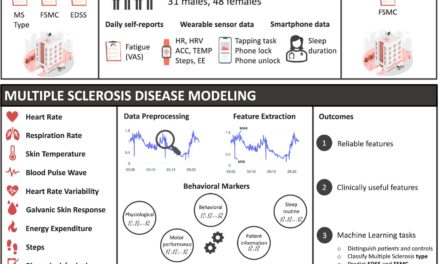A new study reveals a concerning link between infections and an increased risk of heart failure years later. Collaborative research conducted by the University of Minnesota and Mayo Clinic, involving over 14,000 participants over two decades, shows that hospitalizations for various infections—ranging from skin and urinary tract infections to respiratory and blood infections—substantially elevate the risk of heart failure later in life.
The research, published in the Journal of the American Heart Association, suggests a strong correlation between past infections and future heart health, although it does not establish a definitive cause-and-effect relationship. Still, health experts urge individuals to pay attention to these findings and take steps to reduce their risk of infections.
“These are ‘sit-up and take notice’ findings,” said Sean Coady, Deputy Branch Chief for Cardiovascular Sciences at the National Institutes of Health’s National Heart, Lung, and Blood Institute. “This should serve as a wake-up call for people to prioritize infection prevention.”
Heart failure, which affects 6.7 million Americans, occurs when the heart becomes too weak to pump enough blood and oxygen throughout the body. The study’s results surprised researchers by showing that infections commonly associated with relatively low risks, like skin and urinary tract infections, also contributed to an increased risk for heart failure, alongside more severe conditions like sepsis and influenza.
Ryan Demmer, an epidemiologist who led the study at the University of Minnesota before moving to Mayo Clinic, pointed to the immune system’s response to infections as a possible contributor to the heightened risk. “Severe infections may activate the immune system in a way that doesn’t turn off, staying active for many years,” Demmer explained. “This chronic immune response may set the stage for heart failure down the road.”
While the exact mechanisms remain unclear, Demmer suggests that serious infections could trigger genetic or biological changes that remain dormant after hospitalization but later contribute to heart failure. Previous research has shown that hospitalizations for various reasons can increase the risk of developing other health problems later in life, making it possible that infections themselves are linked to other unknown health risks.
The study, which is part of a long-term surveillance program called the Atherosclerosis Risk in Communities (ARIC) study, found that about 25% of participants developed heart failure over three decades. Importantly, those who had been hospitalized for infections at any point were more than twice as likely to develop heart failure. The risks were most significant after bloodstream and respiratory infections, though skin and urinary tract infections also showed a notable correlation. Digestive infections, however, were weakly associated with future heart failure risk.
Although the findings do not prove direct causality, researchers encourage individuals to take preventive measures to avoid infections, such as getting vaccines and practicing good hygiene. For those who have already been hospitalized for infections, Demmer recommends discussing heart health with a healthcare provider to explore potential ways to lower the risk of heart failure.
The study’s results further align with previous research indicating that infections can lead to cognitive decline later in life. In 2023, Demmer’s team found that infection-related hospitalizations raised the risk of dementia.
While the study’s timeframe predates the COVID-19 pandemic, Demmer acknowledged that the global health crisis could further exacerbate heart failure risks due to the large number of hospitalizations and lingering effects of the virus.
In Minnesota alone, COVID-19 has led to over 100,000 hospitalizations in the last five years, with an additional 3,200 hospitalizations since September 2024. Influenza has similarly led to over 4,200 hospitalizations, highlighting the ongoing impact of infectious diseases on public health.
Disclaimer: This study reveals a correlation between infection-related hospitalizations and increased heart failure risk, but it does not establish a cause-and-effect relationship. Further research is needed to explore the exact mechanisms behind these findings.
Source: Rebecca L. Molinsky et al, Infection‐Related Hospitalization and Incident Heart Failure: The Atherosclerosis Risk in Communities Study, Journal of the American Heart Association (2025). DOI: 10.1161/JAHA.123.033877












